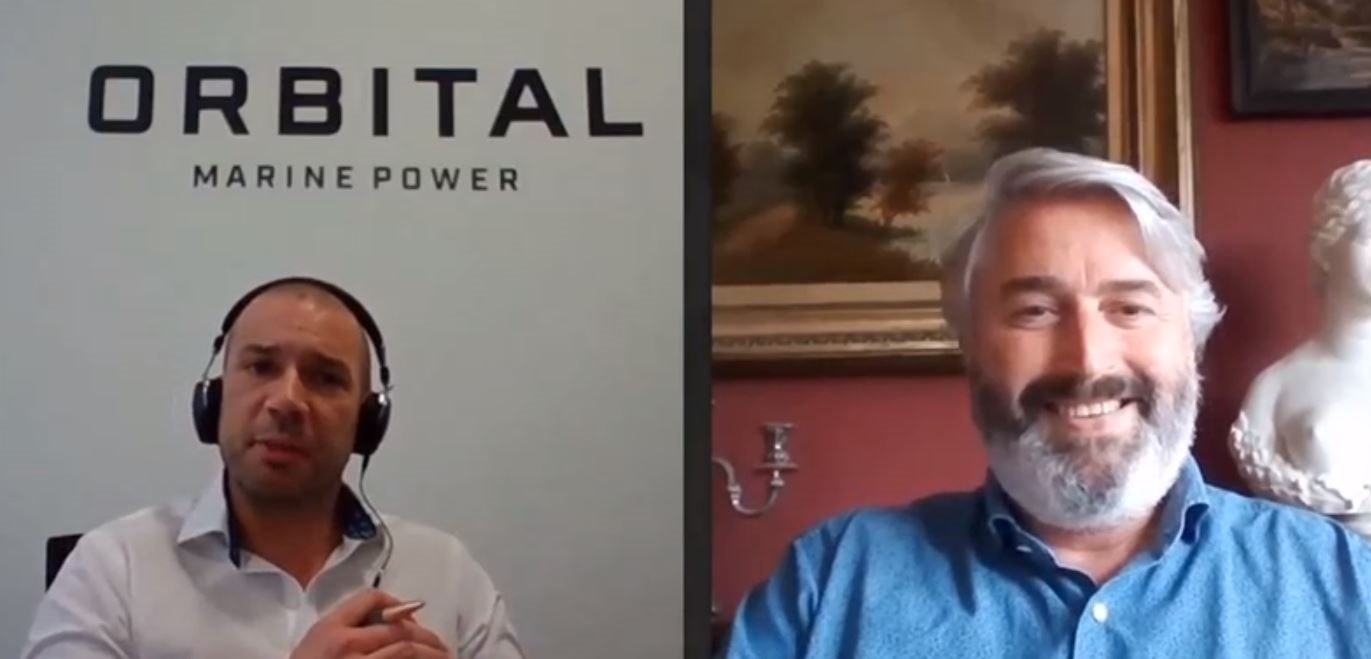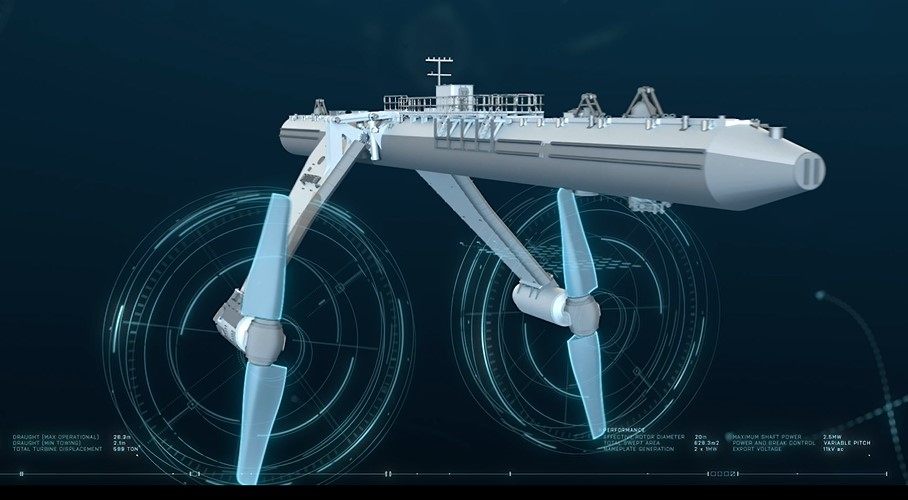IJ Unplugged – Orbital Marine Power
IJGlobal launches its IJ Unplugged series of online interviews, turning the spotlight for the first one on Chris Milne – CFO of a very interesting company that looks set to carve out a niche in the alternative energy space – Orbital Marine Power.
In this interview, Chris joins IJGlobal editorial director Angus Leslie Melville (both pictured below), taking the hot seat to run through Orbital’s floating tidal turbine technology that has been driven forward by a cutting-edge company that was incorporated in 2002, achieved grid connection in 2011… and has interesting plans for 2021.
To access the online interview, CLICK HERE…
Orbital Marine Power is a Scottish engineering company that has been developing tidal energy turbine technology, including rigorous testing of scaled systems in both tank conditions and open ocean environments, since the company was founded in 2002.
It was the first company in the world to successfully grid connect a floating tidal turbine in 2011 with a 250kW scale system that was operated at the European Marine Energy Centre in Orkney.

The company’s current project is the O2 2MW tidal turbine, which will be the world’s most powerful tidal turbine when completed and launched in Orkney early next year (2021). The O2 will have rotor diameters of 20m, which will have a 600sq metre rotor area.
As to financing, it has enjoyed considerable support.

The O2 project has received funding from the European Union’s Horizon 2020 research and innovation programme under the FloTEC project and the European Regional Development Fund through the Interreg North West Europe Programme under the ITEG project.
This project has also received support under the framework of the OCEANERA-NET COFUND project, with funding provided by national / regional sources and co-funding by the EU’s Horizon2020 research and innovation programme.
Request a Demo
Interested in IJGlobal? Request a demo to discuss a trial with a member of our team. Talk to the team to explore the value of our asset and transaction databases, our market-leading news, league tables and much more.